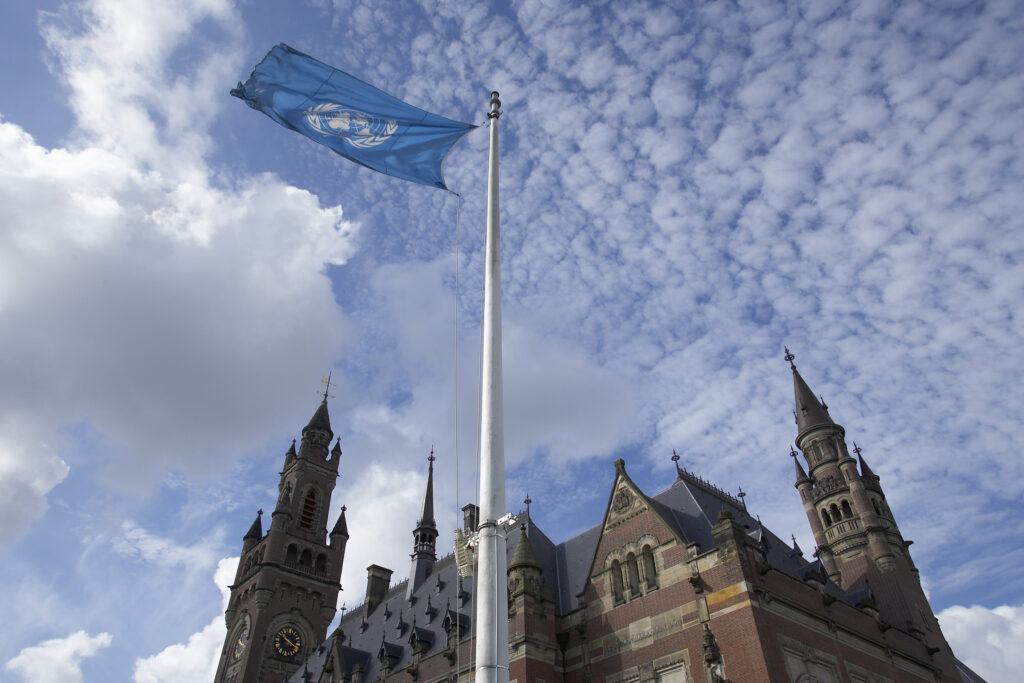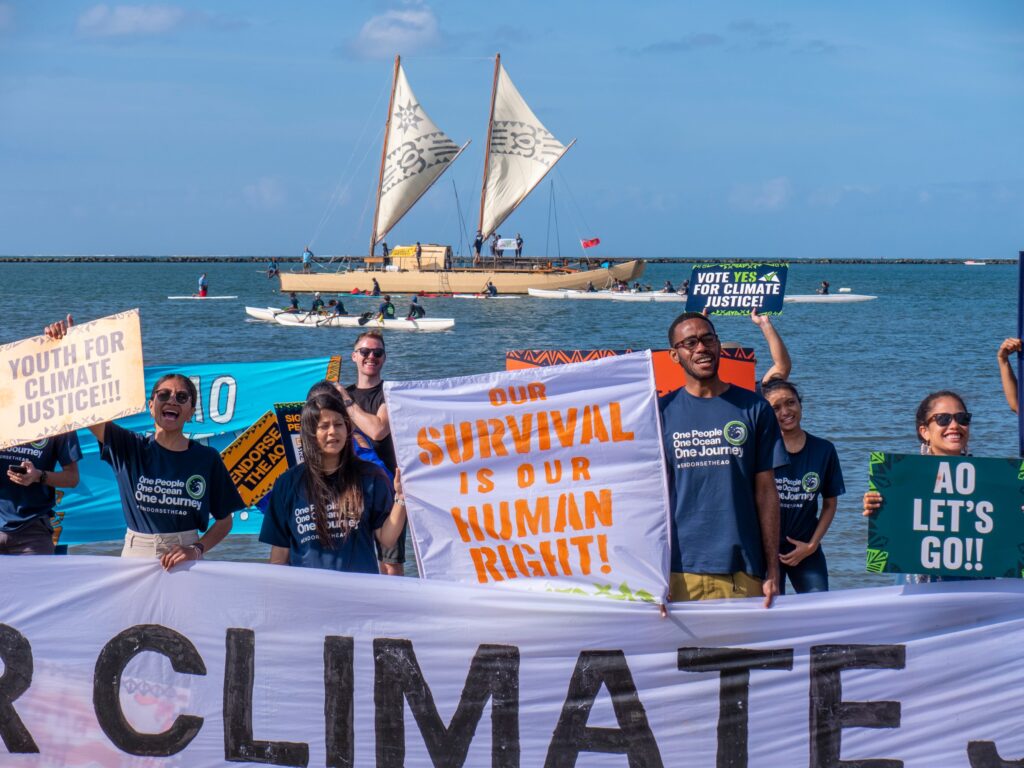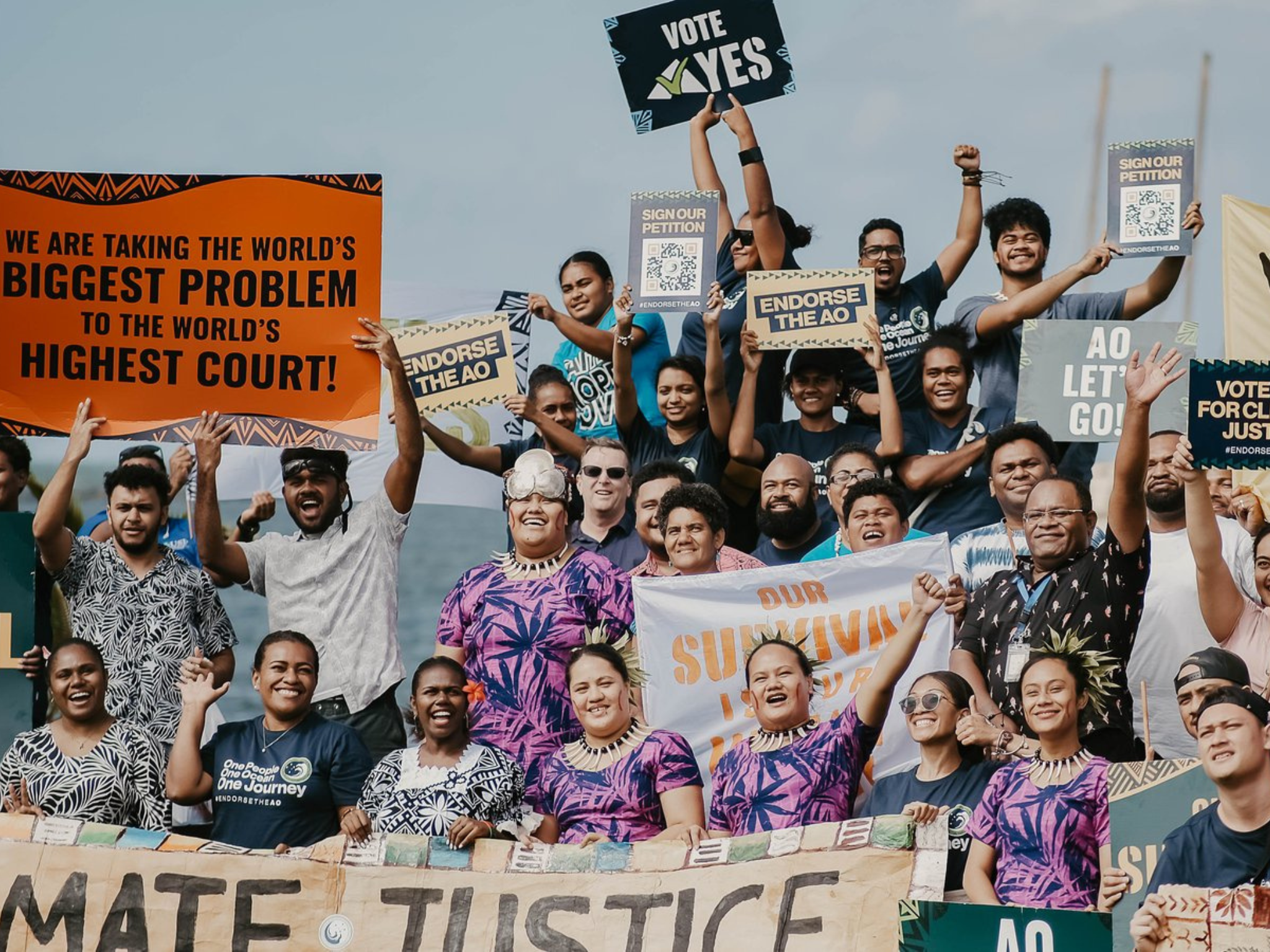World Court Opens Landmark Climate Change Case As Vulnerable Nations Rue COP29 Finance Deal
5 Mins Read
The UN’s top court will today begin historic hearings on countries’ legal obligations to combat climate change and the consequences of their inaction.
A week after countries at COP29 agreed to a climate finance deal that left vulnerable nations furious, the International Court of Justice (ICJ) is beginning hearings for a landmark climate change opinion that could be politically and legally significant for international environmental action.
It is the largest case in the history of the United Nations court, and will cover the legal obligations of countries to protect their people and ecosystems from climate change, and the repercussions for nations contributing to the crisis.
It comes a week after the agreement at COP29, the UN’s annual climate summit, for wealthy states to provide $300B in annual climate finance by 2035 to help poor and developing nations, which face the worst impacts of climate change. But these vulnerable countries called the deal unacceptable and woefully inadequate, with the total being well short of the $1.3T experts say is required every year.
The ICJ case, born out of student-led efforts from Pacific Island nation of Vanuatu, will see arguments presented by 98 countries and a dozen international organisations, including Small Island Developing States, the US, China, oil coalition OPEC, and the WWF.
Court to decide if Paris Agreement is legally binding

The case first came on the map in March 2023, when the UN General Assembly – at the request of Vanuatu – asked the ICJ to issue an advisory opinion on the legal obligations of states to prevent climate change, in what was a historic first for the policymaking organ.
Vanuatu, which will open the arguments at the ICJ, is among the countries most vulnerable to climate change, and has had to deal with increased flooding and typhoons, intense storms, and rising sea levels.
“We live on the front lines of climate change impact. We are witnesses to the destruction of our lands, our livelihoods, our culture and our human rights,” Ralph Regenvanu, the island nation’s climate change envoy, told reporters ahead of the hearing.
Global sea levels have risen by 21-24cm since 1880, but this has accelerated in the decade leading to 2023, when levels rose by an average of 4.3cm. Parts of the Pacific experienced even higher hikes. At the same, time the world has warmed by 1.3°C since preindustrial times, and even breached the 1.5°C target countries agreed to at COP21 in Paris.
The 2015 Paris Agreement, in fact, will be central to the proceedings at the ICJ over the next two weeks, which will determine whether the pact is legally binding, as climate activists have referred to it. If the court does adjudge it as legally binding, it’s likely to draw a challenge from the US, which joined the agreement without the Senate’s review, and could once again leave the agreement altogether under Donald Trump’s second term as president.
And even if it doesn’t find the Paris Agreement to be legally binding, the ICJ could look to other documents to find an obligation, as the European Court of Human Rights (ECHR) did in April, when it issued an opinion stating that protection from climate change was a human right.
The ICJ’s advisory opinions assess legal questions and provide guidance for the court to interpret the existing law, helping inform how it would handle similar cases in the future. While its advice is non-binding and unable to force affluent countries into action, it is likely to drive legislative development and serve as the basis for other climate lawsuits, both on an international and domestic level.
Climate change litigation on the up

At the hearings, 15 international judges will answer two questions: what are countries obliged to do under international law to protect the climate from human-caused greenhouse gas emissions, and what are the legal consequences for states that have caused significant harm to the environment from their actions (or lack thereof)?
The second question particularly references Small Island Developing States, which bear the brunt of the climate crisis, as well as present and future generations affected by its adverse effects.
Ahead of the hearings, the ICJ – also known as World Court – met scientists from the UN’s Intergovernmental Panel on Climate Change, who briefed the judges on the science behind the impacts and future risks of climate change, and the solutions for adaptation and mitigation.
“With most countries falling far short of their obligations to reduce emissions and protect and restore nature, this advisory opinion has the potential to send a powerful legal signal that states cannot ignore their legal duties to act,” said Manuel Pulgar-Vidal, global climate and energy lead at the WWF, and former environment minister of Peru, when he served as the president of COP20.
The ICJ will deliver a decision in 2025, but the proceedings follow an uptick in climate change litigation in recent years. A ruling by the International Tribunal for the Law of the Sea last year stated that countries are legally obliged to fight climate change to preserve the marine ecosystem, for example, while the ECHR’s aforementioned human rights decision was based on a Swiss case, but has implications for the entire continent.
The Netherlands, the site of the ICJ, had a similar human rights ruling by a court in 2015, which was upheld by the Supreme Court four years later. And more recently, South Korea’s top court ruled that the country’s climate law failed to protect basic human rights and ordered lawmakers to strengthen its emission reduction targets. The governments of India, Pakistan, the UK, the Netherlands, Australia, and Germany (among others) too have been forced into climate action by the courts.
“For our generation and for the Pacific Islands, the climate crisis is an existential threat. It is a matter of survival, and the world’s biggest economies are not taking this crisis seriously,” said Vishal Prasad, director of the Pacific Islands Students Fighting Climate Change. “We need the ICJ to protect the rights of people at the front lines.”



